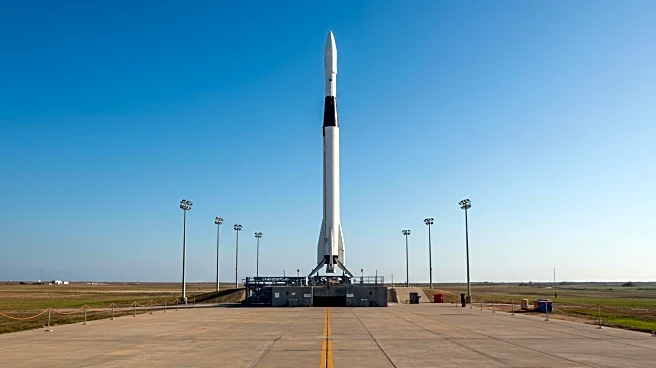What's Happening?
President Donald Trump has signed an executive order aimed at reducing environmental and other regulatory barriers to facilitate the growth of the U.S. commercial space industry. The order seeks to expedite or eliminate environmental reviews for launch and re-entry licenses and permits, establishing exclusions to the National Environmental Policy Act (NEPA). It also calls for the reevaluation, amendment, or rescission of the Federal Aviation Authority's Part 450 rules, which are considered overly restrictive by commercial launch companies. This regulatory reform is intended to enhance the competitiveness of the U.S. space launch market and increase the frequency of commercial space activities by 2030. The order also directs various federal departments, including Commerce, Defense, and Transportation, along with NASA, to identify and address state or local barriers to building spaceports on federal lands.
Why It's Important?
The executive order is significant as it aims to bolster the U.S. space industry's competitive edge in the global market. By easing regulatory constraints, the order is expected to benefit companies like SpaceX, which have faced challenges due to stringent environmental regulations. This move could lead to increased innovation and investment in the space sector, potentially creating new jobs and economic opportunities. However, the success of this initiative depends on effective coordination across federal agencies, which may be challenging given the current staffing gaps in the National Space Council. The reform could also lead to increased competition among space launch companies, fostering a more dynamic and robust industry.
What's Next?
The implementation of the executive order will require consistent top-level pressure from the White House to ensure that the Commerce, Transportation, and Defense departments prioritize commercial space regulatory reform. The identification and removal of barriers to spaceport development on federal lands will be a key focus. Additionally, the space industry will be closely monitoring how these regulatory changes impact the pace and scale of commercial space activities. Stakeholders, including environmental groups, may respond to the reduced regulatory oversight, potentially leading to legal challenges or calls for more balanced approaches to environmental protection and industry growth.









